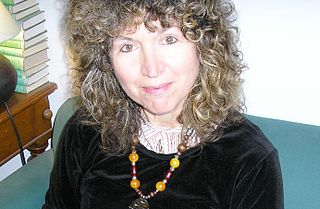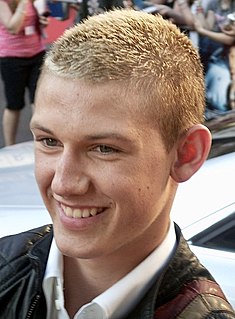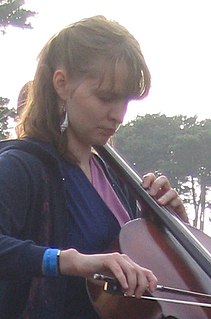A Quote by Caroline Leavitt
I'm big on story structure. I studied with John Truby, who mapped out story by means of moral wants and needs, and that's what I do. Hey, so does John Irving.
Related Quotes
I discovered John Truby ten years ago when a friend told me about his screenwriting course. I studied Truby's principles for a year and -- using them -- I wrote the first draft of The Thieves of Ostia in two weeks. I go back to his teachings before each new book I write. Each time I study Truby, I learn something new.
We [with John Logan] started talking about The Searchers, and then he went on to tell me a story about when he first met John Wayne, and he said, "Hey, you be me and I'll be Wayne," and I said, "No, let me be Wayne!" Anyway, it was a very pleasant conversation, it was clear to him that I was a big movie fan, and by the time I got home, there was a phone call, asking if I'd mind doing one scene in the movie [The Aviator].
Fathers are always so proud the first time they see their sons in uniform," she said. "I know Big John Karpinski was," I said. He is my neighbor to the north, of course. Big John's son Little John did badly in high school, and the police caught him selling dope. So he joined the Army while the Vietnam War was going on. And the first time he came home in uniform, I never saw Big John so happy, because it looked to him as though Little John was all straightened out and would amount to something. But then Little John came home in a body bag.
Maybe for John McCain the American dream means seven houses-and if that's your America, John McCain is your candidate. But for the rest of us, the American dream means one home - in a safe neighborhood, with good schools and good health care and a little money left over every month to go out for dinner and save for the future. Does that seem like too much to ask? John McCain thinks it is.
It's like they talk about how American actors have the method and English actors just kind of switch views faster. And John [Hurt] is telling me the story as he's sitting in that witness chair, and they're putting the final touches of makeup on. And he goes, "Hold on a second," to stop his story so he can do the take. And he does this incredible take. They go, "Cut." And then immediately John goes, "Anyways, so Alec, he's playing the chess." And I'm just going, "Holy crap." You get whiplash from those kinds of quick turns!



































